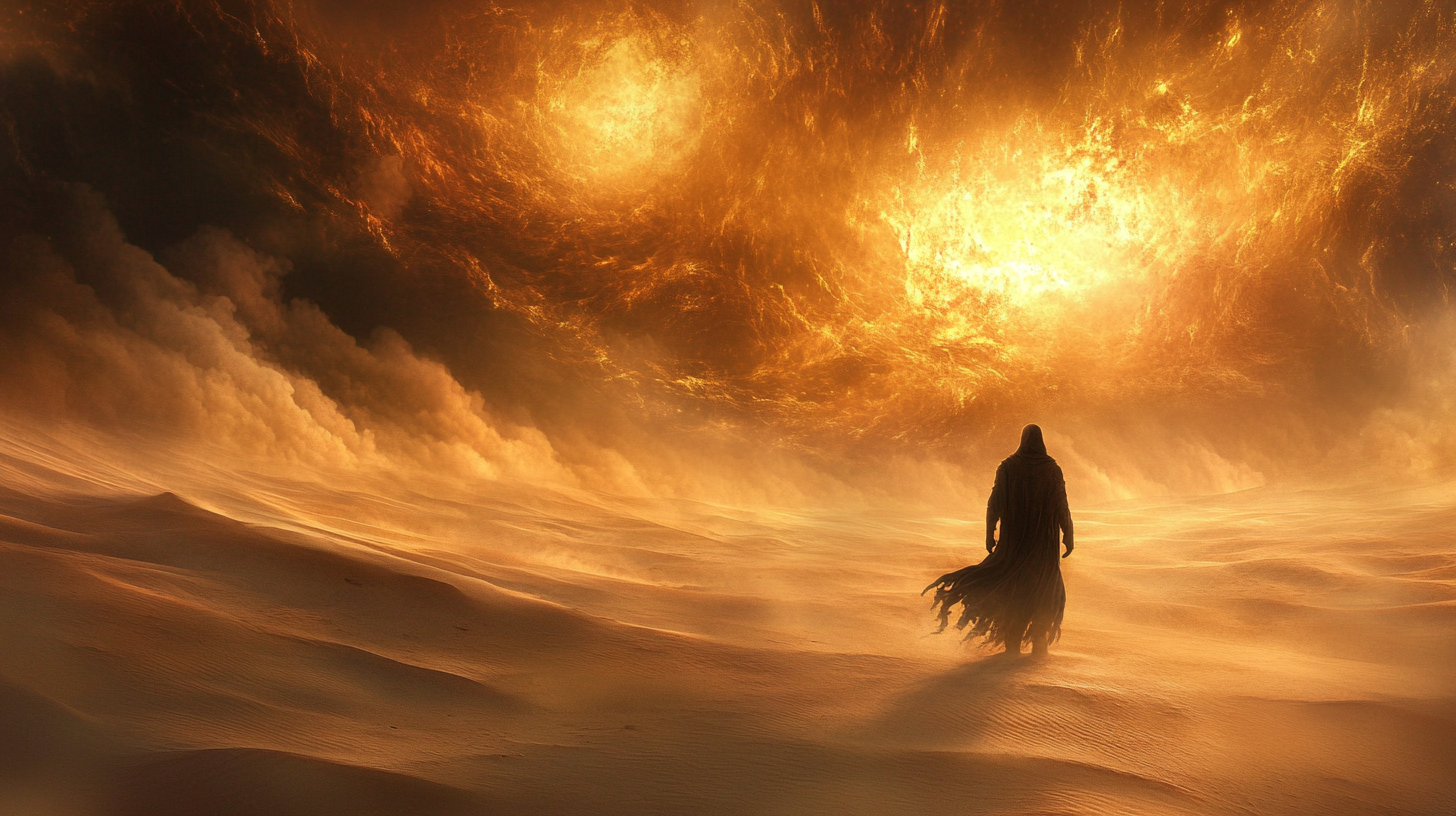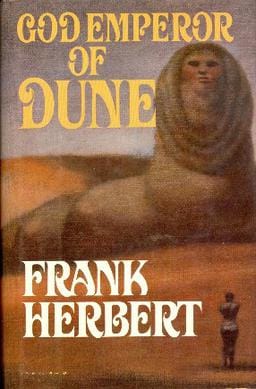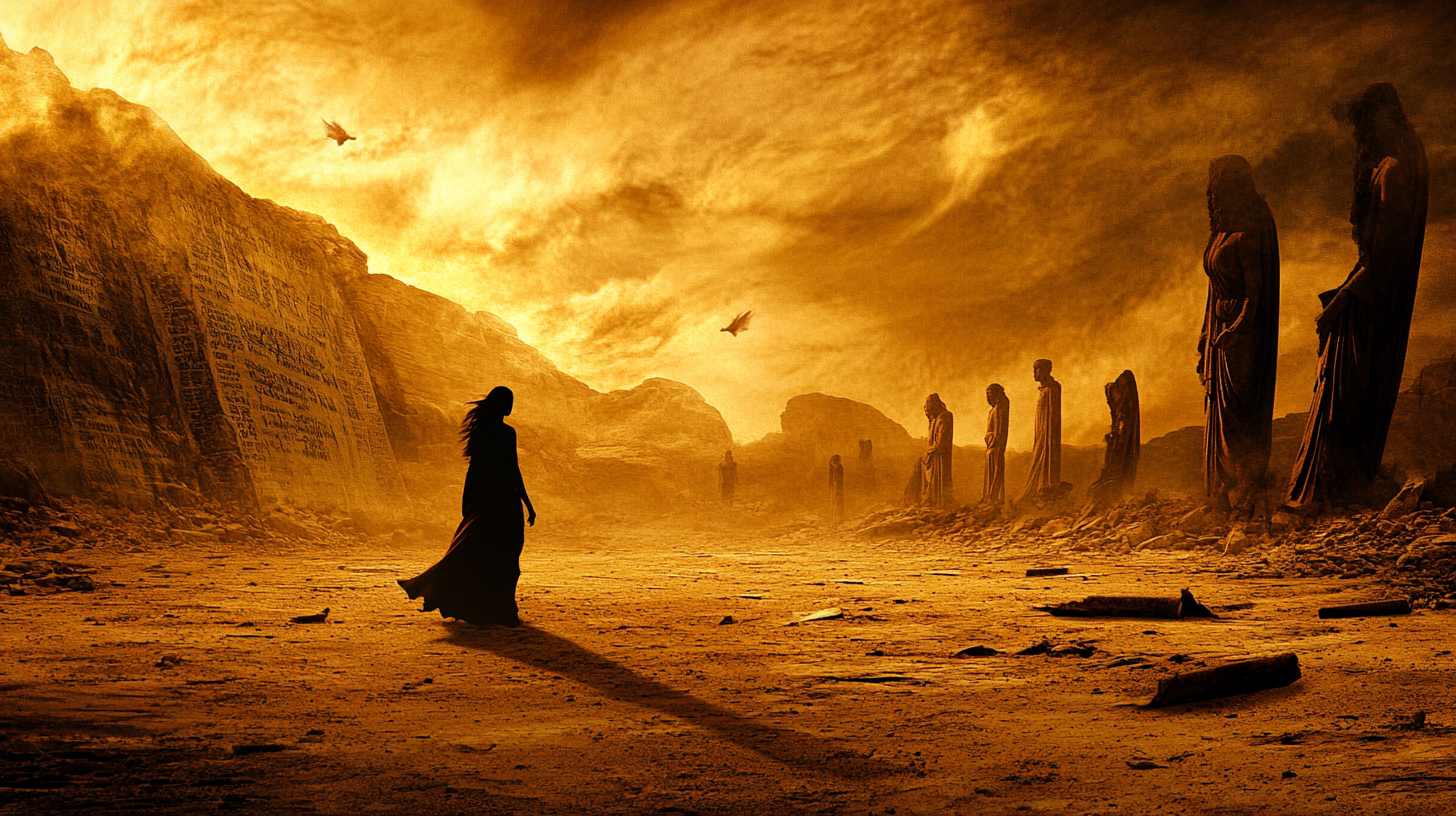Leto II: The Visionary Guardian
Leto II of the Dune saga chooses sacrifice over self to guide humanity’s future. His story is one of discipline, destiny, and the true price of freedom earned through vision and mastery.

In the sprawling chronicle of Frank Herbert's Dune saga, few figures loom as large or as enigmatic as Leto II Atreides.
Introduced in "Children of Dune" and fully realized in "God Emperor of Dune," Leto is a character who not only envisions the future but bends it to his will. Where others falter before the heavy toll of foresight, Leto steps forward, prepared to bear the cost.
The theme of mastering oneself to control one's fate is etched into every decision he makes. Unlike his father, Paul Muad'Dib, who recoiled from the terrifying implications of his prescient vision, Leto embraces it. He becomes not just a sovereign, but a living instrument for humanity's survival. His choice to transform—physically, mentally, and spiritually—is not born from ambition, but from an overwhelming sense of duty.

For readers who cherish science fiction's golden era, Leto's journey speaks directly to timeless values—discipline, sacrifice, and the burden of responsibility. In an age where the individual often yields to the whims of culture, Leto II emerges as a model of internal strength and moral clarity. His story is not one of conquest, but of purpose pursued at the highest price.
Embracing the Burden
Leto II's decision to merge with the sandtrout in "Children of Dune" is not a moment of madness or desperation. It is an act of supreme intention. Faced with the terrible clarity of prescience, he sees the future's potential ruin and recognizes that no one else possesses the will to divert it. Rather than retreat from the burden, he embraces it. He understands that the price will be nothing less than his humanity.
The sandtrout symbiosis marks the beginning of his metamorphosis into the God Emperor. This is no passive mutation. It is a conscious and controlled surrender of his human form in exchange for time. Time enough to guide mankind along a narrow path toward survival. Unlike mythic figures who stumble into legend, Leto calculates each move. His foresight, inherited from Paul but steeled by commitment, becomes the foundation of a future where humanity breaks free from stagnation.
This transformation expresses the highest form of self-mastery in the Dune saga. It is not simply about endurance. It is the moral discipline to deny comfort, subdue desire, and carry forward a vision only he can see. Leto does not allow fate to mold him. He takes hold of it and sets it on a deliberate course.
To the classic science fiction reader, Leto's journey affirms a belief in moral courage, vision, and the hard-won cost of legacy. His sacrifice is not a tragedy but a triumph forged through discipline.
A Blueprint for Survival
In "God Emperor of Dune," Leto II unveils the full scale of his vision. The Golden Path is not a destiny to be fulfilled, but a blueprint designed with purpose and resolve. Leto understands that left to its own devices, humanity will destroy itself—through addiction to prescience, loyalty to rigid institutions, and a cycle of charismatic tyrants.

His answer is bold and absolute. Leto centralizes all power—controlling spice, trade, faith, and war. His rule is stern, but not senseless. Every policy is crafted to choke stagnation and provoke eventual rebellion. He does not seek compliance. He cultivates resistance. Through millennia of structured peace and limitation, he breaks the old patterns of dependence. What emerges is not docility but restlessness—exactly what he intends.
His people may call him a despot, but Leto knows the greater truth. His control is temporary. The boredom, repression, and structure he imposes are not permanent prisons. They are training grounds. They teach humanity to survive without prophecy and reliance on centralized strength.
The Golden Path reflects Leto's unwavering commitment to order, vision, and long-term survival. He does not offer freedom without cost. He forges it, generation by generation, as a gift for those yet to come.
Tyrant for the Future's Sake
Leto II's rule in "God Emperor of Dune" is often interpreted as tyranny, but to see it only as that is to misunderstand the nature of his sacrifice. Leto does not cling to power for its pleasures. His reign offers him little beyond solitude and suffering. His transformation has rendered him nearly immortal, but also alien. He is no longer truly human. He cannot be touched, cannot be loved, and cannot share in the ordinary joys of his subjects. This is not a throne taken by ambition. It is a burden shouldered by conviction.
He does not delight in control. He wields it because no one else will. Every act of suppression and every decree of stillness is measured and intentional. His purpose is never his own comfort, but the preservation of humanity. He knows that only through generations of stability can the human race build resilience and break free from the cycles of collapse that plagued earlier eras.
Leto invests his life and his identity into the future. He becomes the tyrant so that no other tyrant will rise unchecked. He bears the hatred of his people so that their descendants may know freedom beyond the grasp of prophecy.
His power is not a possession but a crucible. It tempers the soul of humanity through fire and pressure. And when the time comes to release that pressure, the explosion scatters the seeds of independence far across the stars.
A Future Unchained
The ultimate proof of Leto II's vision comes not during his rule, but at its end. In the final pages of "God Emperor of Dune," we meet Siona Atreides—a product of Leto's carefully cultivated breeding program. Siona is invisible to prescient vision, a human being who cannot be trapped by the future. She is the key that unlocks the next age. With her, the Golden Path fulfills its purpose.

Siona's emergence signals the breaking of the chains that bound humanity to the tyranny of foresight. Leto knew the danger of a people too easily seen, too easily controlled by those who could predict and manipulate their every move. In her, and those like her, Leto gifts humanity true freedom—the kind earned through hardship, sacrifice, and discipline.
Leto II was never merely a ruler. He was a liberator. Not through rebellion or revolution, but through a sacred vision carried forward at unbearable cost. His was a tyranny of purpose, not of ego. He mastered himself completely, guided fate with deliberate resolve, and prepared humanity to stand alone.
To the reader of classic science fiction, his story is not a warning. It is a testament. It reminds us that real freedom is forged, not granted—and that the highest form of power is the power one gives away.

